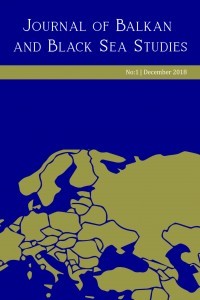
Journal of Balkan and Black Sea Studies
Yazarlar: Avdi SMAJLJAJ
Konular:Sosyal
Anahtar Kelimeler:Multiethnicity,Constitutional settings,Balkans
Özet: Multiethnicity is one of the main longstanding features of the Western Balkan politics, though it has never in history been so ethnically divided as it is today. Ethnic identity has structured and shaped politics and political systems of the Western Balkan countries for a considerable time, and continues to do so even today, but at a more intense and institutionalized level. In post Yugoslav countries ethnicity has remained the main feature of political systems and constitutional structures, particularly at larger scale and depth in cases of three states: North Macedonia, Kosovo, and Bosnia & Herzegovina. As multiethnic societies, divided exclusively along ethnic cleavages they have opted for a sort of consociational and centripetal constitutional systems, pertaining to provide enough say and representation to ethnicities. These structural settings are primarily driven by democratization process and post-conflict ethnic reconciliation motives, through providing institutional structures for self-governing power to each ethnicity. However, the so far experience has proved often a stalemate at central government capacities to govern, compromising the governability of these polities, marking no progress in ethnic reconciliation, and largely promoting postdemocratic practices. Nevertheless, those systems are considered as not yet fully consolidated, with not promising prospects. Therefore, the paper will try to shed light on the post conflict structural inter – ethnic settlements and their reflections into democratic politics, governability, and inter–ethnic reconciliation, through comparing the three cases considered here. The research questions of the this paper are: what are the current constitutional and structural settings, based on ethnicity, comparing cases of the three countries? What is the influence of these inter – ethnic constitutional structures on governability and democraticness of the three countries? And, how far is this enabling inter–ethnic reconciliation? This is a comparative study, addressing the three research questions in all three cases studied here, comparing them to find out similarities and differences among them. The design of the study is qualitative one, using a grounded theory, collecting data to analyze the three cases, based on primary and secondary sources, constitutions, documents, books, articles, media sources.
Dergi editörleri editör girişini kullanarak sisteme giriş yapabilirler. Editör girişi için tıklayınız.